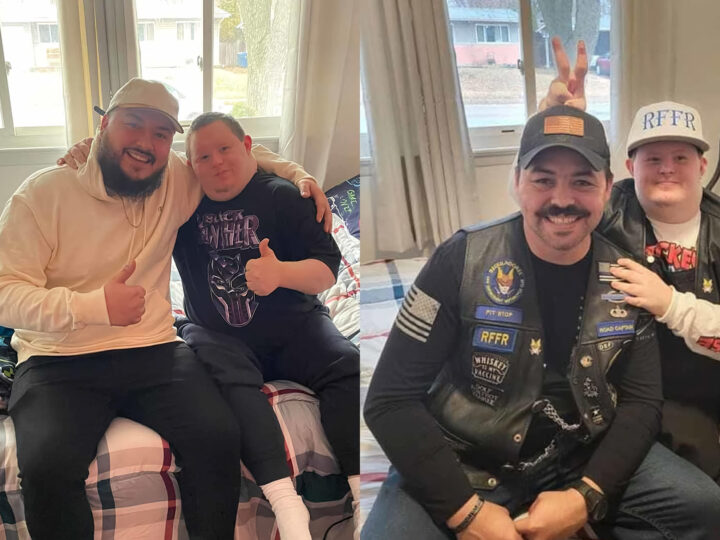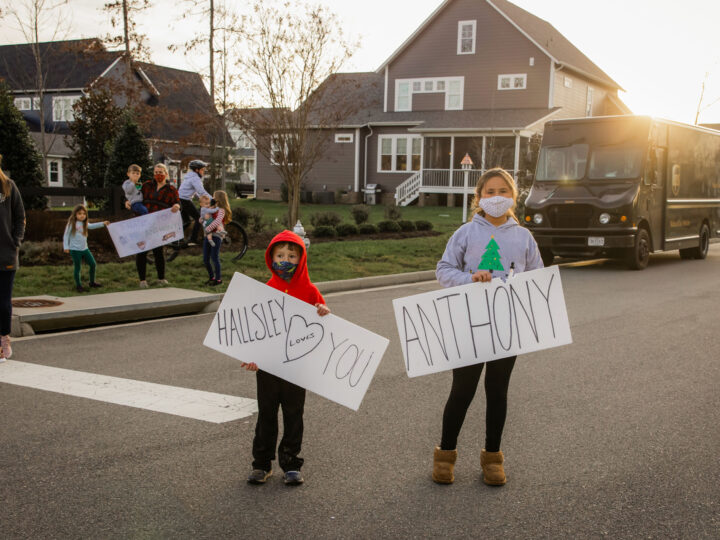For a Los Angeles writer, a routine story becomes the catalyst for a synchronistic sequence of events that prove love has the power to unite people and heal wounds across generations and time.
By Luke Cowles
I was the Senior Regional Editor of a major nursing trade magazine for years and had written hundreds of stories for the publication. On one particular assignment, I thought I was going to write a story about a nurse’s experience treating the homeless. What resulted was a powerful story of how love brought two people together who needed a second chance for healing in their lives. As if that wasn’t incredible enough, the published story would become the catalyst for a cross-country reunion that was 47 years in the making. As a professional writer, this story remains my proudest piece of work, not because of the prose, style or anything I did, but because it was the beginning of a synchronistic series of events that brought love, healing and reunion to three people, and my pen was a part of that process.
My initial interview was with a nurse, Carrie, at Twin Cities Community Hospital (TCCH) in Templeton, CA. She told me of a homeless man who had stumbled in to the emergency room several months before with chronic pulmonary obstructive disease (COPD) and pneumonia. His condition was very serious and he was covered in dirt from head to toe. Initially, he was very frightened and threw things at the nurses. Eventually, he did agree to allow them to remove his filthy baseball cap and cut his hair and 8-ince beard.
The only information he could provide was his name, Don Nadel. Trying to stabilize Don was turning into an enormous challenge because he would yell, spit or kick anyone who tried to care for him. He was a stranger in a strange land in TCCH and his fear was making it impossible to stabilize his condition. One evening, when Don was on the brink of total respiratory failure, Carrie had a realization while struggling to secure his breathing apparatus. It was at that moment that Carrie knew if Don was to heal, he needed more than a nurse; he needed a friend. She also knew that if she was to become his friend, there was no way she could turn him back out onto the streets. What she didn’t know was how this split-second commitment to Don would help her heal some of her old own old ghosts.
Carrie shared with me that she had an uncle who was a very kind man, but had made many poor choices in his life. She’d kept in touch with her uncle over the years and promised him that he wouldn’t die alone. It was an unexpected illness that took her uncle quickly and Carrie wasn’t there. It haunted her terribly until Don stumbled through her ER door just a few weeks later. After some time, Carrie would learn that her silent commitment to Don would be the catalyst for healing the guilt she carried for her uncle.
Maybe it was the nurses having saved his life or perhaps he knew intuitively of Carrie’s silent commitment to him, but after his respiratory arrest, Don began to cooperate with everyone. He’d visit the nurses’ station for conversation or company. Sometimes, they’d treat him to a tour of the department in his wheel chair. He started asking for coloring books and playing cards. He even told jokes. The nurses called his newfound socialization nothing short of a miracle.
Don eventually regained his health and the pressure was on to release him from the hospital. Carrie was beside herself. She didn’t have any additional information on Don than she did when he’d arrived two months earlier. She couldn’t turn him back out onto the streets, but what could she do? She needed another miracle.
One day, a new housekeeper came across the floor and Don was sitting in his wheelchair in his doorway, as usual. The housekeeper recognized Don because she and her family had been homeless for some time and squatted in the same compound with Don many months ago. Carrie suddenly had more information to use. A DNA test would also reveal that Don had Mosaic Down syndrome, a form of mental retardation. This information would later answer a lot of questions about how Don had become homeless decades earlier. Shortly before his release, Don’s birth certificate revealed that he head a birthday coming up. The nurses decided to throw him one; his very first in 61 years.
After two months in the hospital and with the help of social services, Carrie arranged for Don to be released to a convalescent care center. Carrie visited Don every week to do his laundry, cut his hair, play games and just talk until the day he passed away. She knew that this unconventional friendship that blossomed out of a crisis had been healing for both of them in profound ways. The story was published and received an excellent response. What Carrie and I didn’t know at that time is that this story was far from over. More dominos would fall in a synchronistic fashion and touch other lives thousands of miles away that were in need of love, healing and closure.
Don has passed away before I wrote the story. You can find the original piece here (http://nursing.advanceweb.com/Article/Simple-Gifts-1.aspx). I highly recommend reading it, as the above is only a synopsis. Carrie had Don cremated, but was holding onto the ashes because she hadn’t decided what to do with them. Just weeks after the story appeared, Carrie called me with a conclusion to the story that astounded me.
Carrie said she’d been contacted at the hospital by a woman who claimed to be a cousin of Don’s. She said that she had found the article online and urgently needed to reach her. Carrie was skeptical of the woman, but as she began revealing things about Don that only a family member could know, she knew this woman was telling the truth.
The cousin revealed that Don’s mother was quite wealthy after having married a high-ranking military officer. It was he who had a strained relationship with Don. There were frequent fights and lots of frustration surrounding why Don wasn’t “right”. In those days, people understood very little about Down syndrome. After one particularly violent argument, Don was thrown out and told not to come back. He didn’t. He was 14. He ended up homeless in California and the family could never find him again for the next 47 years, until the article I wrote was published.
The woman on the phone told Carrie of the tremendous guilt and sorrow Don’s mother had carried for a lifetime for allowing him to be thrown out. She deeply regretted that she hadn’t gone after him. Now, she was on her deathbed and longed for the chance to reunite with the son she turned away and die in peace. Carrie regretfully told the cousin that Don had already passed, but that she would be willing to drive Don’s ashes to Texas so that mother and son could be buried together. Don would finally come home, and they would be reunited after all.
That’s exactly what she did. Later, Carrie would tell me that she just had a feeling that she should hold off doing anything specific with Don’s ashes. She didn’t know why. Now we do. It was to allow for the time for a story to be written so that a mother and son, separated by thousands of miles and nearly five decades, could be reunited because of a loving choice Carrie made to a homeless man, who needed something more than anything else in the world: love.
JOIN THE MOVEMENT
Subscribe to our newsletter and receive inspirational stories delivered to your inbox that spread love, updates on our movement, and notifications on upcoming deals & events.





